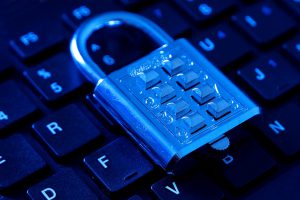Commercial law explained: legal essentials for businesses in the UK
Our legal guides are written with the participation of its committee of expert lawyers.
Commercial law governs the legal framework for businesses and commercial transactions in the UK. It covers a wide range of topics, including contracts, company formation, intellectual property, mergers and acquisitions, and dispute resolution. This area of law ensures that businesses operate fairly and efficiently, protecting their interests while complying with legal standards. This cluster offers practical guides on navigating commercial agreements, understanding legal obligations, and managing risks. Whether you’re an entrepreneur, a small business owner, or part of a large corporation, these resources provide the knowledge to make informed decisions and succeed in the business world.
Contact our commercial law/business law solicitors for expert legal advice.
Get in touch with one of our
commercial law specialists
Our top posts
on commercial law

What regulatory protections currently apply to cryptoassets in the UK?
Published on 21/03/2025, by Qredible - Reading time: 8 mins
Many investors mistakenly believe that FCA registration of a crypto platform means their digital assets are protected like traditional investments, when in reality, this registration only ensures anti-money laundering compliance and offers minimal consumer protection.


How to respond to a Subject Access Request?
Published on 20/11/2024, by Qredible - Reading time: 5 mins
Incomplete data searches. Organizations often focus on obvious digital records while overlooking less traditional sources like CCTV footage, messaging apps, or archived files, leading to non-compliance and potential legal consequences.


Boilerplate Clauses: What are they?
Published on 11/10/2024, by Qredible - Reading time: 4 mins
The boilerplate provisions of your agreement should never be ignored. When you read through these clauses, the language seems similar. However, the little differences in the use of words will make a considerable difference in interpreting your commercial agreement or acquisition transaction documents.


How can a personal injury trust help protect your compensation?
Published on 19/04/2024, by Qredible - Reading time: 7 mins
A personal injury trust, also called a compensation protection trust, is a legal arrangement that helps protect the money you receive as compensation for a personal injury or medical negligence case.

Debt Collection Procedures in France: The European Payment Order
Published on 02/09/2021, by Qredible - Reading time: 4 mins
An Overview of the European Payment Order (EPO) The European Payment Order is a debt collection procedure meant to simplify the cross-border recovery of uncontested claims within the European Union....

Protecting your Intellectual Property Rights!
Published on 11/09/2020, by Qredible - Reading time: 5 mins
Intellectual property, or IP, refers to an idea or other form of creative work must legally be treated as an asset or physical property. IP law covers the protection of copyrights, trademarks, patents, trade secrets, and several other domains. Generally, IP laws give the creator of a unique idea a monopoly over its use.


Reassessing the balance between creditor and debtor interests
Published on 06/08/2020, by Qredible | Reviewed by SBP Law - Reading time: 5 mins
On 20 May 2020, the Government published the Corporate Insolvency and Governance Bill (the “Bill”) which, under the accelerated parliamentary process, received Royal Assent on 25 June 2020. Consequently, the Corporate Insolvency and Governance Act 2020 (the “Act”) became law.


What is Capital Gains Tax?
Published on 23/07/2020, by Qredible - Reading time: 2 mins
In the United Kingdom, like many countries, there is a very complicated tax system, a series of levies imposed upon both individuals, businesses and organisations. These levies are payments that have to be made the government via Her Majesty’s Revenue & Customs (HMRC)


Conditions of a Commercial Property Lease
Published on 19/06/2020, by Qredible - Reading time: 4 mins
Starting or expanding a business can be an exciting prospect. However, if this involves moving into a commercial residence for the first time, it can also be daunting. Lease agreements often contain complex contractual clauses and seemingly impenetrable legal jargon.

The strength of a society is measured by its commitment to justice, safeguarded by its solicitors.
Platon
Find a solicitor
With over 2,000 solicitors listed, find the one best suited to your needs. We will then help you get in touch.
Contact a solicitor









